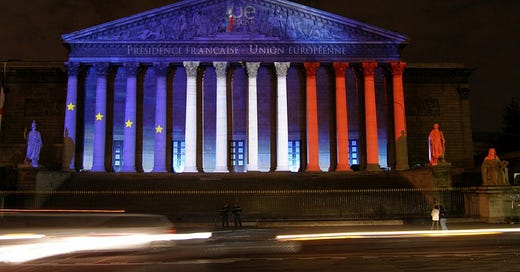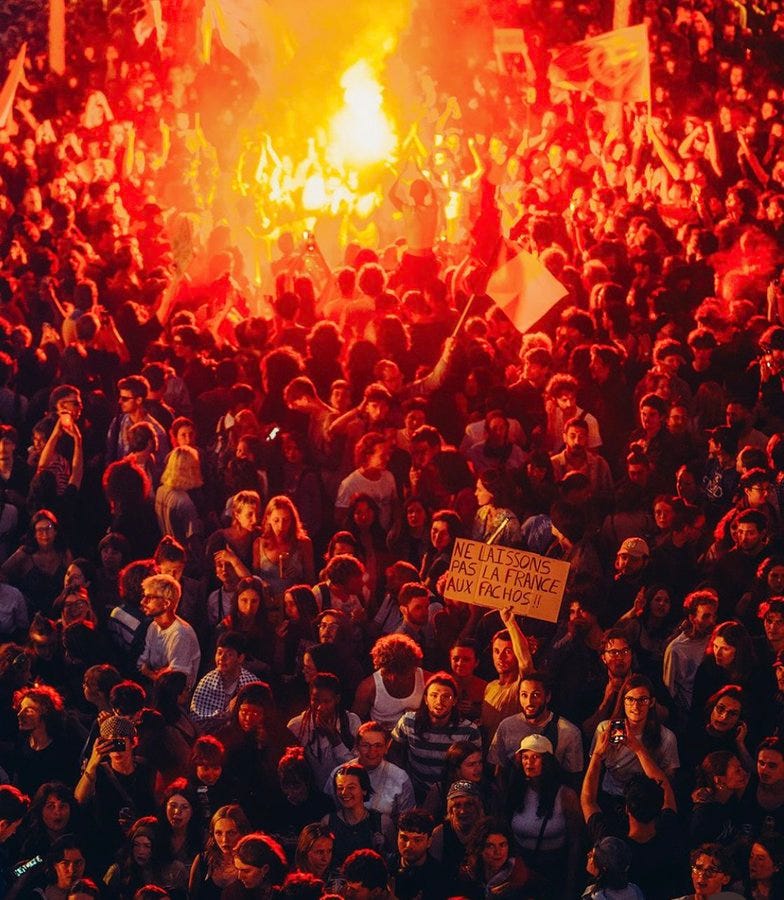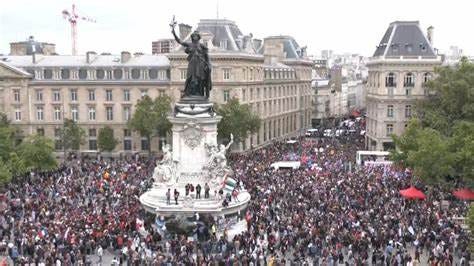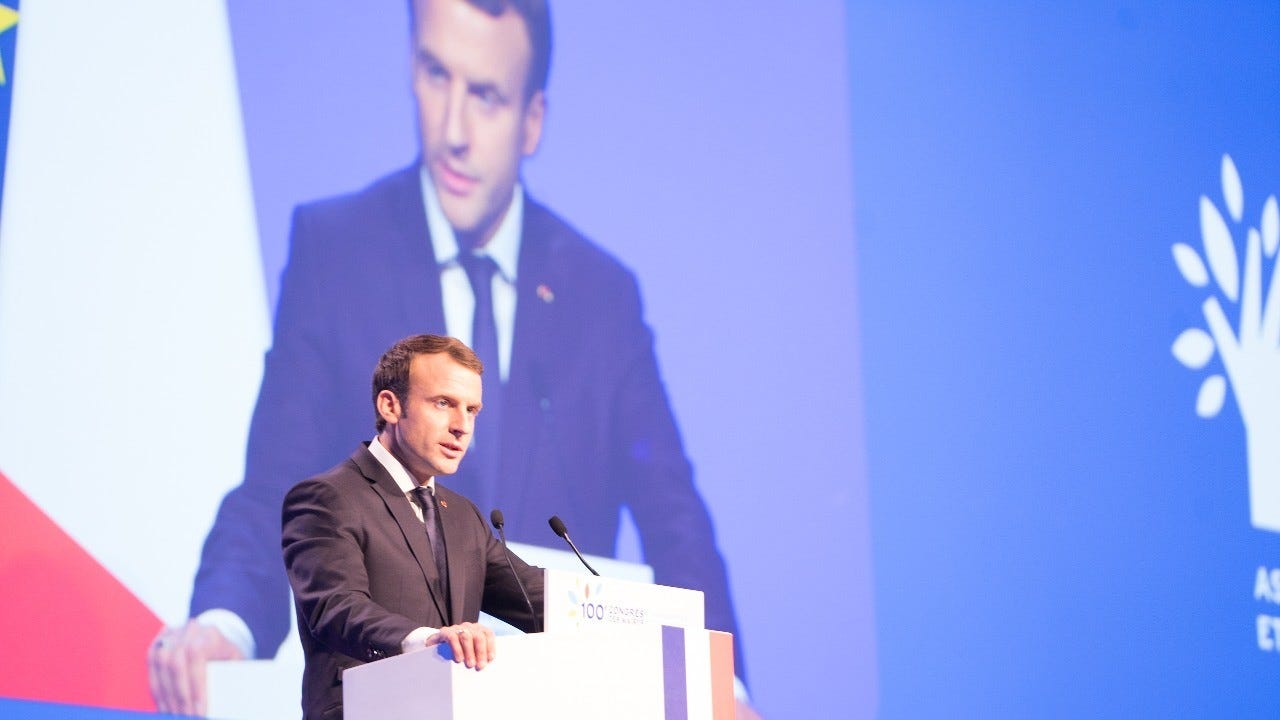Did you hear about the recent snap elections that just took place in France?
I was keeping a close eye on the situation myself, because there was a great chance the far-right would gain a foothold in the government. This could affect immigration rules for people like me, who are aiming for a long-term future in France. (The far-right, typically, wants to tighten immigration laws.)
Here’s why the snap elections were held in the first place.
European election results shocked people
The European Parliamentary elections were held at the beginning of June. That’s when voters in each European Union country, including France, vote for the parties they want to represent them in the European Parliament.
In France, the far-right party, Rassemblement Nationale (RN), won the majority of votes. The RN is led by a young buck named Jordan Bardella, who took over as head of the party from Marine Le Pen, who is still very much a figurehead.
After that, tensions became palpable in the French capital and around the country.
The election results shocked many in France, prompting President Macron to dissolve the National Assembly and call for a snap election.
The election was held in two rounds - first on June 30, the second on July 7.
Amidst all the uncertainty, there was a HUGE protest against the rise of the far-right. People from all walks of life showed up - families, old folks, youth - everyone. From my apartment, I could hear the rallying cries over the loudspeaker as thousands of people gathered for the common cause.
The mass protest took place at République, a symbolic meeting point because it represents the values of the Republic of France - liberty, equality, fraternity.
In the center of the large, pedestrianized square stands the statue of Marianne, the personification of France — proud and tall and now defaced by graffiti. The ‘decorated’ statue itself is a pretty accurate depiction of what’s been happening.
People don’t seem to be happy with the current government, but many certainly do not want a far-right government, either.

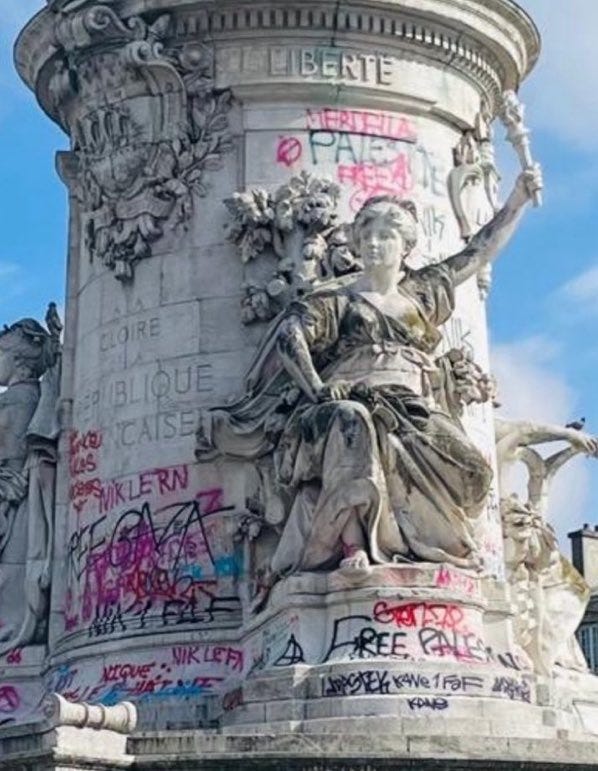
The first round of voting
After much campaigning by all parties, the first round took place, and the far-right RN won, just like in the European Parliamentary elections.
This really freaked people out.
The second round of voting
A week later, the stakes were incredibly high. As a result, there was a lot of backroom deal-making among the left-wing parties to create a coalition called Nouveau Front Populaire (NFP). They are all minority parties with varying platforms — uniting against the RN.
That new coalition NFP won the majority of votes in the second round and that’s the vote that counts. Many French people breathed a collective sigh while the far-right supporters received the results with shock and dismay.
What happens now?
Normally, a new Prime Minister would be picked by Macron to appease the winner of the election. But the alliance NFP was loosely cobbled together and there are plenty of divisions between its parties.
Also, no party won a clear majority in the election, so the National Assembly could become embattled. So if the parties within the National Assembly don’t like Macron’s pick for Prime Minister, they can hold a no-confidence vote against him or her, and the government could collapse. (It’s important to note that in France, the President handles defense and foreign affairs; the Prime Minister handles domestic matters.)
France is set to host the Olympic Games at a time when the country faces a lot of questions. I’m not sure whether the French people will be able to enjoy their summer holidays this year… though if I had a choice, I’d rather be complaining about the state of affairs from a villa in Bordeaux than fighting off Olympics tourists in Paris.
Happy Bastille Day!
Sources if you want to learn more:


